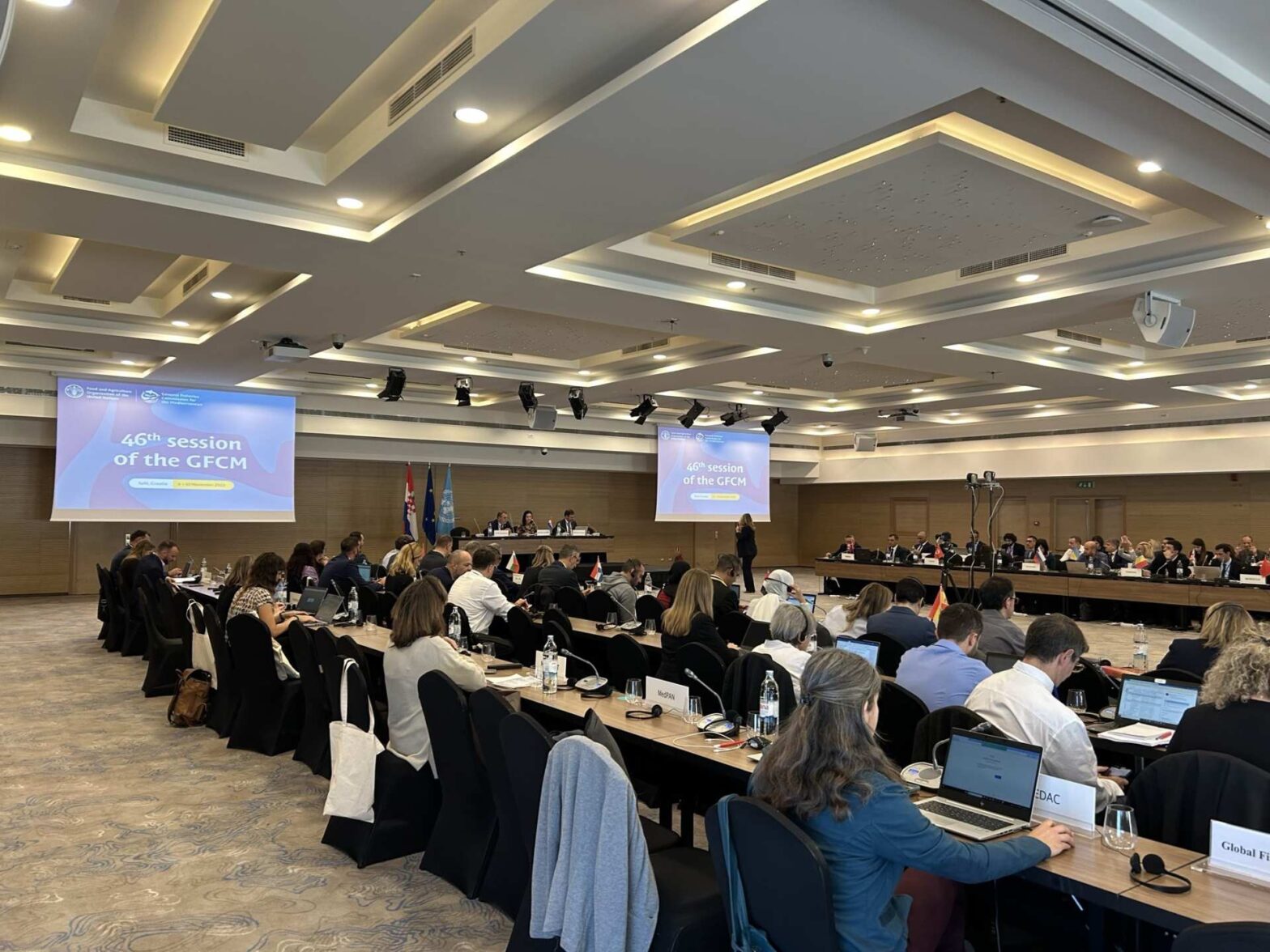General Fisheries Commission for the Mediterranean: OceanCare reports on Activities
The 46th session of the General Fisheries Commission for the Mediterranean (GFCM) was held in Split, Croatia, from the 6th to the 10th of November. The GFCM has an important role to play in the management of fish stocks in the Mediterranean and in ensuring the conservation and sustainable management at the biological, economic, and environmental level. OceanCare has been a partner to the GFCM since 2016.
In December 2021, the GFCM and OceanCare signed a Memorandum of Understanding (MoU) that further formalised our joint work towards the protection of the marine environment against pollution, such as underwater noise and marine plastic, and the improvement of fisheries governance as well as climate change mitigation.
This relationship has proven fruitful in the past, inter alia, resulting in a joint case study on the negative impact of noise on fish stocks in the Jabuka/Pomo Pit Fisheries Restricted Areas (FRA) in the Central Adriatic Sea.
OceanCare reports on its activities
In line with its partnership, OceanCare attended the 46th session of the GFCM in Split and reported on a number of relevant activities that the organisation has undertaken to advance the protection of the marine environment in the Mediterranean.
- OceanCare reported on its engagement in the process that has led to the BBNJ Agreement (High Seas Treaty) and shared its excitement over the adoption of the Agreement. We reminded Parties that the Agreement is now open for signature and reiterated OceanCare’s commitment to remain engaged, encouraging countries to ratify and implement the Agreement as soon as possible.
- OceanCare also reported on its various successes on addressing underwater noise pollution specifically, including assisting in the drafting and presentation of the ACCOBAMS Noise Hotspots Report II and engagement with shipping associations to convince them of the need to re-route to avoid navigating through the habitats of endangered whales in the Mediterranean and to slow down vessel speed.
- OceanCare likewise reported on its work on tackling plastic pollution. We specifically noted our continued engagement in the development of the global plastic treaty. In this respect, we shared insights into our joint briefing events during INC-2 in June in Paris and INC-3 in November held in Nairobi together with the Cook Islands, EIA, SPREP and others to discuss, with interested member states, how to advance work on plastic pollution emanating from fisheries activities in the new instrument. OceanCare underscored its continued efforts in developing a robust plastic treaty and also highlighted its support for a scientific survey by partner organisation Alnitak around the Balearic Islands to examine the abundance of abandoned, lost, discarded fishing gear (ALDFG).
- OceanCare also brought a recent study to the attention of the GFCM and its Parties. Our partner organisation the Dolphin Biology and Conservation (DBC) published a study that found that trawlers appear to be important drivers of dolphin distribution, “with dolphins foraging and scavenging behind trawlers during 39.3% of total observation time in trawling days”.
A thriving and healthy ocean relies on the well-being of fish and other marine life
The healthy management of fisheries is crucial for maintaining the ecological balance of the ocean. Fish contribute to biological diversity and abundance of marine species. Additionally, healthy fisheries support the livelihoods of millions of people around the globe. Given the devastating impacts of underwater noise pollution on fish, plastic pollution, the consequences of climate change, and over exploitation, marine life continues to remain threatened. OceanCare’s engagement within the GFCM therefore continues to remain a priority.
